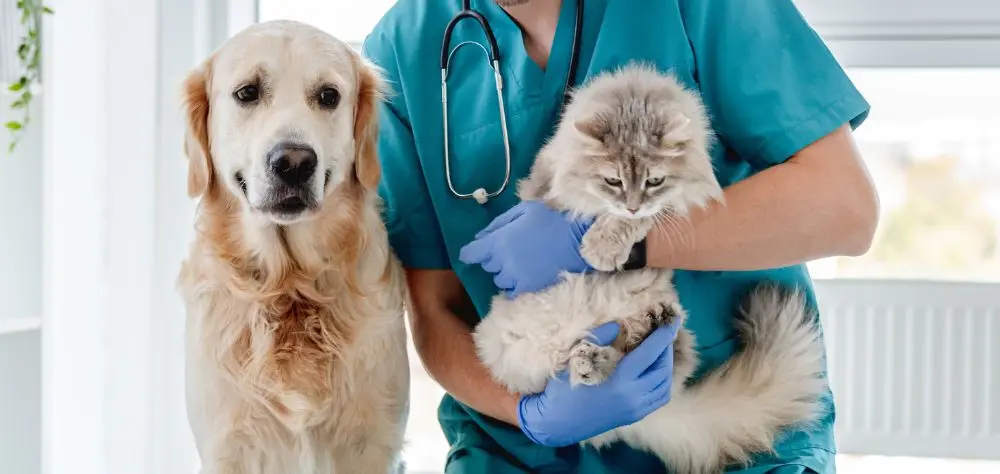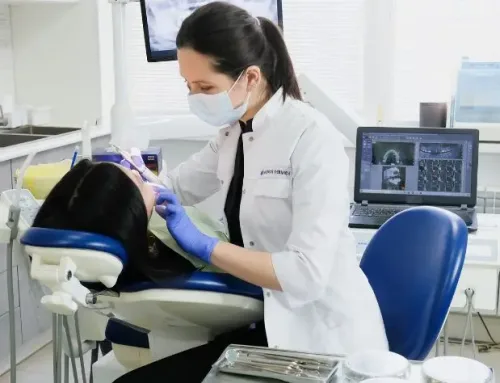Exploring Pre-Veterinary Programs: Schools, Career Pathways, and Requirements

Some of the best pre vet programs don’t just teach science—they help future veterinarians map out a clear, flexible path to grad school and clinical practice. But figuring out where to start—and how to stand out—can be confusing, especially with so many program types and application requirements out there.
Whether you’re still exploring if veterinary medicine is right for you or already focused on getting into vet school, knowing what to look for in a pre-vet program is key. The right choices now can open doors later—and make your journey smoother, faster, and a lot less overwhelming. So what exactly sets a strong pre-vet track apart? Let’s take a closer look.
What is a Pre-Vet Program?
If you’re just beginning your journey into veterinary medicine, it’s important to understand that “pre-vet” is not a standalone major—it’s a track. That means your official degree could be in biology, animal science, health sciences, or any related discipline. What matters most is that you complete the right coursework for veterinary school admission.
This track is designed to prepare you academically and experientially for the rigors of veterinary school, while giving you room to tailor your studies to your interests. Whether you’re passionate about large animal care, exotic species, or lab research, the pre-vet path can support your goals—as long as your academic foundation is strong.
Required Coursework for Pre-Vet Students
Most veterinary schools expect students to complete a core set of foundational courses before applying. These typically include:
- General Biology
- General and Organic Chemistry
- Physics
- Anatomy & Physiology
- Genetics
- Microbiology
- Math (College Algebra or Statistics)
- English or Communications
It’s smart to check the specific prerequisites of the schools you’re interested in early on, since some may have additional or slightly different requirements.
Tailor Your Major, Stay on Track
While many pre-vet students choose majors like biology or animal science, it’s entirely possible to major in a broader field like health sciences—as long as you incorporate the required science and math coursework. This flexibility lets you explore complementary subjects while keeping your veterinary goals on track.
Ready to dig into the specifics? We recommend exploring the AAVMC’s VMCAS portal, where you can find a detailed breakdown of veterinary school application requirements across the U.S. and beyond.
How to Build a Strong Vet School Application
If you’re early in your pre-vet journey, it’s easy to assume that good grades alone will get you into veterinary school. But admissions committees are looking for more than a transcript. They want to see a full picture—academic performance, personal drive, hands-on experience, and the ability to handle the demands of clinical practice.
Most schools follow a similar framework when reviewing applications, and knowing these criteria ahead of time can give you a head start on building a well-rounded profile.
5 Key Areas Vet Schools Evaluate
Admissions committees typically assess applicants across several major categories:
- Academic Readiness: Your GPA—especially in science courses—carries serious weight. Admissions teams want to know you can handle the rigor of veterinary school.
- Animal Experience: Time spent volunteering or working in shelters, farms, zoos, or animal clinics helps demonstrate commitment and comfort around animals.
- Veterinary Experience: Shadowing or assisting a licensed veterinarian shows that you’ve seen the profession up close and understand what it demands.
- Letters of Recommendation: Strong, personalized letters—especially from veterinarians or science faculty—can speak to your character, work ethic, and readiness.
- Personal Statement: This is your chance to explain why veterinary medicine matters to you and how your background supports that path.
Building a Well-Rounded Application
While every applicant’s path looks different, successful candidates often balance academic achievement with real-world experience and thoughtful reflection. Vet schools want students who show both capability and clarity—people who understand the profession’s challenges and are motivated to meet them.
Future-ready, Supportive, and Designed for Your Goals: SCU’s Pre-Vet Options
At Southern California University of Health Sciences (SCU), we understand that aspiring veterinarians don’t all follow the same route. Whether you’re returning to school, changing careers, or simply need a more adaptable option, we offer programs designed to meet you where you are—and help you move forward with confidence.
With our transfer-friendly bachelor’s completion degree, accelerated science courses, and our graduate-level medical science program, you can build the academic foundation and experience that veterinary schools are looking for. Each option is structured to support your success, whether you’re finishing your undergraduate studies or looking to strengthen your application before applying to a DVM program.
Bachelor of Science in Health Sciences (BSHS): A Transfer-Friendly, Pre-Vet Ready Finish
Our BSHS program is built for students who already have 60 or more college credits and want to finish their degree online—without losing their momentum or flexibility. Every course is delivered asynchronously, meaning you can study around your work schedule, family responsibilities, or other commitments. You’ll only take two courses at a time, each lasting 7.5 weeks, so you can actually absorb what you’re learning without burnout.
Program Highlights:
- Fully online and asynchronous: log in on your schedule
- Flexible pacing: full-time, part-time, or ¾-time—switch as needed
- Pre-vet relevant courses in genetics, anatomy, nutrition, and more
- Customizable concentrations tailored to graduate school goals
- Designed for career changers, returning students, and busy adults
Master of Science in Medical Science (MSMS): A Launchpad for Vet School Admission
Our MSMS program is where academic confidence is built—and where competitive applications are forged. Designed for students applying to professional health programs, this graduate-level program simulates the pace, pressure, and depth of a first-year veterinary or medical curriculum. It’s fast, intense, and focused—available in both 11- and 20-month formats, online or hybrid.
You’ll get personalized dashboards to track your academic growth, faculty mentorship from professionals who understand what admissions committees are really looking for, and USMLE-style assessments that help prepare you for entrance exams. It’s not just about raising a GPA—it’s about showing that you’re ready to handle the next level.
This is the program for students who want to prove—clearly and confidently—that they’re prepared for veterinary school’s demands.
Ready to Take the Next Step?
Explore our full range of programs and find the option that fits your life, goals, and timeline. At SCU, we’re here to help you go further—starting from wherever you are.
From Passion to Profession: The SCU Way Forward
Finding the best pre vet programs is about more than just picking a school—it’s about choosing a pathway that fits your life and supports your goals. At Southern California University of Health Sciences, we offer flexible, transfer-friendly and graduate-level programs that meet aspiring veterinarians where they are and help them move forward with clarity and confidence.
Whether you’re completing your bachelor’s or strengthening your application, our programs are built to guide, challenge, and support you every step of the way. Ready to take that next step toward veterinary school? Explore our admission requirements and apply today—we’d love to be part of your journey.
FAQs
What are the best pre vet programs for students who need flexibility?
The best pre vet programs offer strong science coursework, personalized advising, and flexible formats like online or hybrid learning—especially helpful for career changers or students balancing work and school.
Do I need a specific major to apply to vet school?
No. You can major in biology, health sciences, or any field—as long as you complete the required pre-vet coursework in subjects like biology, chemistry, and physics.
How much animal experience do I need for a strong vet school application?
Most vet schools want to see hundreds of hours, but quality matters as much as quantity. Work in shelters, farms, zoos, or clinics can all count.
How important is the personal statement in my application?
Very. It’s your chance to show why veterinary medicine matters to you and reflect on your experiences. Authenticity and clarity go a long way.
Can I finish my bachelor’s degree online through SCU if I already have college credits?
Yes. Our BSHS program is online and designed for students with 60+ transferable credits who want to finish strong on a flexible schedule.
Related Posts




